
Watch out Animal Welfare Pledge
view now1 Wildlife Safaris
Enchanting Travels believes that when executed well, wildlife safaris can provide substantial education about the natural world and wildlife for every generation. We will always remind guests that animals are wild and have the freedom to act any way they please – everything is on their terms and encounters cannot be guaranteed. We actively support partners that are engaged in anti-poaching initiatives. Poverty alleviation through tourism employment allows communities to become guardians of the land, rather than victims in criminal activities such as poaching.
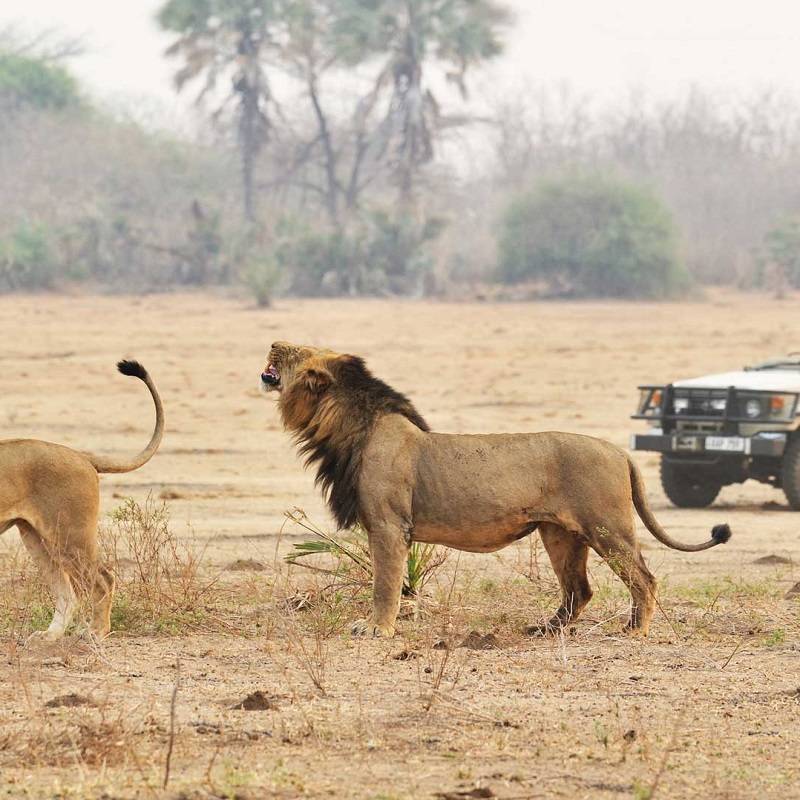
Marine Wildlife
Some marine wildlife actively flourishes around human company and so we do offer certain activities, such as swimming or snorkeling with wild dolphins, and kayaking with penguins in their natural habitat. For such activities, we partner with conservation projects and/or responsible companies that have marine biologists overseeing activities. We work with whale watching operators that also act as vital research boats, hosting marine biologists responsible for monitoring these incredible creatures. We offers opportunities to witness turtles hatching in their natural habitats under the supervision of responsible organizations and marine biologists from a respectful, non-invasive distance.
/
2 Animals in Captivity
Animal Welfare Principles
Enchanting Travels supports the guiding principles of animal welfare, the Five Freedoms which have been adopted by leading global organizations, including the World Organisation for Animal Health, the Royal Society for the Prevention of Cruelty to Animals, and the American Society for the Prevention of Cruelty to Animals.
- Freedom from hunger or thirst by ready access to fresh water and a diet to maintain full health and vigor
- Freedom from discomfort by providing an appropriate environment including shelter and a comfortable resting area
- Freedom from pain, injury, or disease by prevention or rapid diagnosis and treatment
- Freedom to express (most) normal behavior by providing sufficient space, proper facilities, and company of their own kind
- Freedom from fear and distress by ensuring conditions and treatment which avoid mental suffering
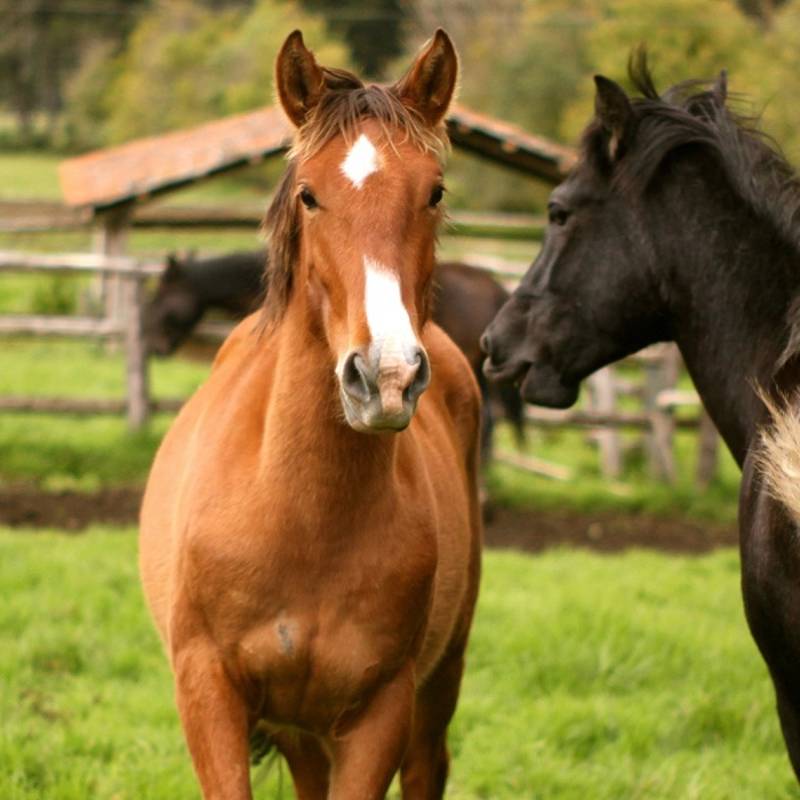
Some rescued wild animals have been domesticated as a means to aid their rehabilitation, and therefore also engage with guests as a means to financially support their care. However, we do not endorse any wildlife organizations that are profiteering from the unnatural domestication of wild animals, such as promoting animals to perform for the camera or be cuddled by guests.
Zoos and Aquariums
We do not find issue with wildlife that is being well cared for in the most natural environment possible. When done well, zoos, wildlife parks, or aquariums that have animals in captivity can be positive environments that create awareness and interest in a variety of wildlife species, especially among younger generations, and can protect endangered species through international breeding programs. We allow such experiences in guest itineraries through responsible establishments.
Rescue and Sanctuaries
We believe that wild animals should stay wild while acknowledging exceptions such as when wild animals have been abandoned, injured, or critically endangered and need human care and support. We support organizations that take care of orphaned and injured animals that cannot be released back into the wild and that focus on engaging and educating visitors as a means to protect against poaching and habitat loss. We feel that when executed with care, rescue animals and sanctuaries can educate guests about these crucial issues. We only support wild animals being bred in captivity if they are under officially-recognized breeding programs where animals can be safely and responsibly released back into the wild.
Domesticated and Farm Animals
We acknowledge the cultural traditions of domesticated and working animals, such as horses, camels, and donkeys. All our animal experiences that feature domesticated and farm animals should be guided by the Five Freedoms principle. We will not support partners that overwork or overload creatures. Animals that are being ridden should never carry more than 20% of their own body weight. All animals undergoing training should be trained using positive reinforcement and reward-based methods. Drugging, chaining, starving or any abuse used for training purposes is deemed wholly unacceptable.
Animal Performances and Shows
We prohibit animal experiences that involve wild animals performing or being used disrespectfully for the purpose of entertainment. These include animal amusement parks and wild animals in captivity within human-centric areas, such as in restaurants and at tourist attractions.
Elephant Interactions
We seek to promote ethical elephant experiences that commit to a high standard of elephant welfare and conservation. We support carefully-selected elephant sanctuaries and orphanages that use funds from guests’ visits to take care of rescued elephant orphans or elephants too old or sick to live in the wild. While these experiences might include guests bathing and feeding elephants, we do not offer any experiences where guests ride elephants.
Big Cat and Bear Interactions
We do not condone experiences that involve direct interactions with big cats or bears in captivity – be it big cat walking or cub petting.
Fishing
We allow responsible fishing experiences through carefully-selected partners in appropriate environments where there are no concerns for overfishing. Catch-and-release fishing experience is generally preferred.
Horse and Camel Riding
We allow horse and camel riding experiences through carefully-selected partners in appropriate environments.
Animal Sports
We do not support or condone animal sports in which animals are harmed or treated unfairly. These include trophy hunting, bullfighting, cock-fighting, elephant polo, and bear-baiting.
Animal Welfare Code of Conduct for Guests
Enchanting Travels believes that animal welfare is a shared responsibility with guests and that guest conduct during animal experiences with us is equally important. We request that our guests to:
- Follow the Five Freedoms animal welfare principles (see above)
- Keep a non-invasive, respectable, and safe distance from all wild animals
- Avoid taking photos and selfies at the expense of restrained animals
- Respect the natural environment, avoid littering and keep noise to a minimum
- Avoid purchasing souvenirs derived from endangered wild animals, including tortoiseshells, horn, scales, ivory, and skins
- Avoid consuming products derived from endangered wild animals, including shark fin soup, turtle soup, bushmeat, and whale meat
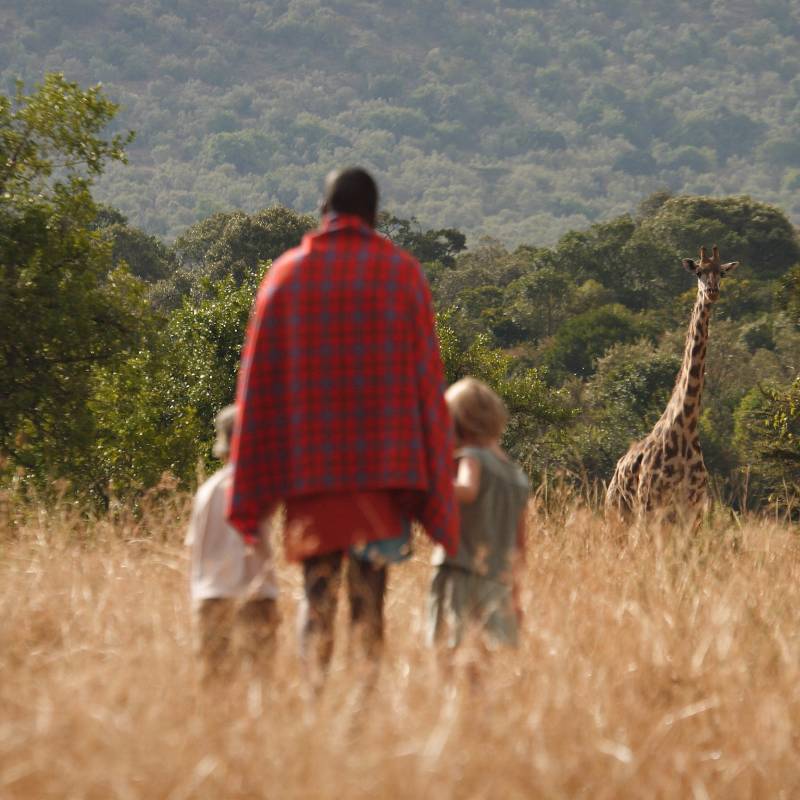
Responsible Travel: For Today and Tomorrow
To us, practicing sustainability or responsible travel means being responsible in the way that we work – it pervades what we do on a day-to-day basis.
Our Responsible Travel Policy articulates our approach. While it is not exhaustive, we see it as a start to explaining how we operate and how these initiatives relate to what we do on a day-to-day basis.
RECOMMENDED WILDLIFE TOURS
Yasuni National Park
Set on the equator between the Andes and the Amazon, Yasuni is arguably the most bio-diverse spot on earth, with millions of species of plants, birds, insects and mammals. You can explore this region in a eco-conscious and non-intrusive way from the Napo Wildlife Center, a community project focused on sustainable tourism and providing essential facilities to the indigenous Kichwa Añangu Community.
Chobe National Park
Located in the northern part of Botswana, Chobe National Park is home to a large variety of wildlife. Hippos, lions, and antelopes call the Linyanti Marsh its home. A true wildlife paradise, you get to connect with nature in their own backyard. Keeping sustainable tourism in mind, visit Chobe National Park and it’s lush environment as discreetly as possible.
When you travel with us, you have the option of selecting responsible options: sustainable and eco-conscious accommodation, and activities that contribute to animal welfare and conservation.
All our responsible tourism accommodations and activities are highlighted with the Enchanting Travels sustainability icon.

FROM THE BLOG
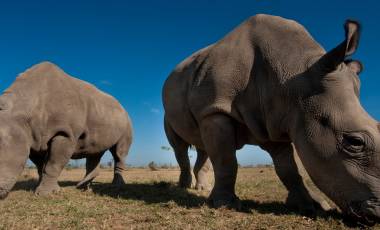
How do you ensure an endangered species goes back – and stays on – the safe list? A renewed threat has come to one of Africa’s Big Five – the black rhino in Kenya. An increased interest is stemming from the market in Asia, leading to higher numbers of poachers.

Planning a wildlife tour? From underwater expeditions in the depths of the oceans to the best African safari tours and the jungle jaunts in Borneo, journey to where the wild things are.
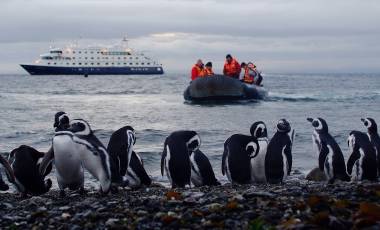
Wildlife lovers behold – it’s time to fulfill your wildest dreams with unique one-time-only animal encounters. We have hand-selected our most enchanting and memorable animal encounters across our destinations: swimming with an elephant in the ocean, walking with penguins, sharing your breakfast with giraffes or chimpanzees and watching whales in their natural habit.
Sorry, your search found no results.
Choose your responsible vacation from more than 70+ enchanting destinations in our collection!
